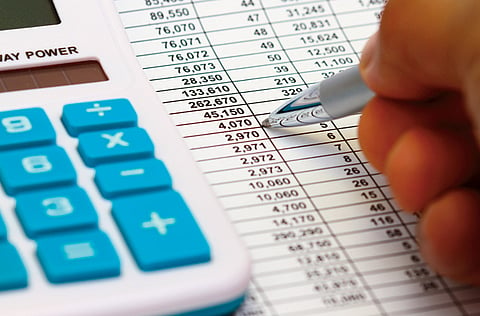How vital is it to go through one's bank statements this pandemic? Here's why I read them!
The natural tendency is to skip reading ‘mundane’ statements, but it's time to think again

Let’s be frank, bank and credit card statements are not the most interesting things to read on a regular basis. Add to this water and electricity bills, insurance statements and various others that come to us digitally, flooding the already crowded inbox. They are all about figures, is the usual refrain.
The natural tendency, therefore, is to skip reading ‘mundane’ statements.
Think again. Is that all you care about your hard-earned money?
I try to read the bank and credit card statements every month for various reasons.
First and most important is that I want to keep track of my money. If I have worked hard to earn ‘x’ amount of money, I also have the responsibility to find out where it has gone, how I have used it and whether I have been a good steward of the resources given to me. It may be boring and repetitive, but at the end of the day I know I am keeping tabs on my money.
Remember when you first got a credit card – how the bills were filed away, the statements examined with a microscope and the payments made on time. Over the years a sense of lethargy and false security crept in and there was a feeling that someone out there was being careful with my accounts.
Today when I go through the bank or credit card statement, I check to find out if I recognize all the payments that have been entered? Has the bank deducted any money without telling me? Has there been an oversight on my part or from the bank’s side? Are there any hidden fees that I do not know about?
I remember a friend who would make a late payment fee to the bank every month for her credit card not because she did not have the money, but because she would forget to make the payment. That is not only being lazy, but also having scant regard for money.
Secondly, it has become a habit. I have seen my father poring over the figures on a bank statement much before the ATM days, and making comments like ‘Why did I withdraw money on a particular date, or ‘Why has the bank deducted this amount?’ Going through a bank statement must become a habit before one asks the question: Where did my money go?
Thirdly, I read my statements every month because I don’t like being cheated. Not very long ago I was taken for a ride by a sweet-talking insurance agent who convinced me that I had to pay the premium for a policy for only three years. Only when the policy lapsed did I find out how gullible I was. Had I taken time to read the fine print, I could have avoided needless heartburn.
All of us like to see a healthy bank balance. To ensure this it is important to know where the money is going. Studying the bank and credit card statements is one of the first steps towards finding this out. Keep track of your money. Read your statements.
Sign up for the Daily Briefing
Get the latest news and updates straight to your inbox







